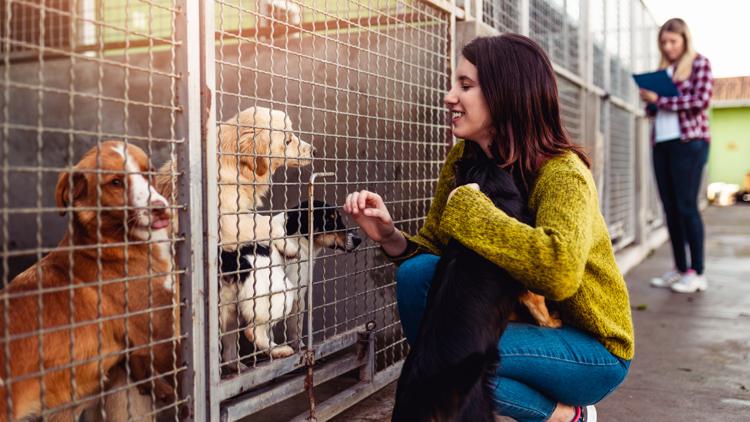
Dog Adoption Red Flags: Essential Insights for Health-Conscious Pet Owners
Share
Embarking on the journey of dog adoption is both noble and fulfilling. However, it's vital for health-conscious pet owners to remain alert to dog adoption red flags that might signal underlying issues. With the right information, you can dodge potential challenges and ensure that you provide a loving forever home for a furry companion.
The first step toward a successful adoption is recognizing the key dog adoption red flags. Being aware of these warning signs will help you spot any health or behavioral issues that could affect your living conditions. This guide aims to highlight the common red flags to look out for and offers strategies for addressing them effectively.

Recognizing Health Concerns in Dog Adoption
As a health-conscious pet owner, the welfare of your future canine companion is of utmost importance. One major red flag is the presence of visible signs of illness or untreated health conditions. Watch for symptoms like coughing, nasal discharge, skin irritations, or limping. If these issues are not taken care of, they can escalate into more serious health concerns.
Another critical consideration is the dog's vaccination and medical history. Make sure the adoption organization or shelter provides complete, up-to-date records. A lack of information is a significant red flag. You want assurance that your new pet is vaccinated against common diseases and has received necessary treatments, such as deworming and flea prevention.
Behavioral Red Flags to Monitor
In addition to physical health, behavioral issues can also pose significant concerns for potential adopters. Dogs that show signs of aggression, extreme fearfulness, or anxiety may need special attention and training. Assess whether you have the time and resources to meet these needs.
Observe the dog's behavior in different situations, especially around other pets or children. A well-adjusted dog will generally show a stable temperament and react appropriately to various stimuli. Persistent negative behaviors might indicate other options are worth considering.
Evaluating the Adoption Agency
The credibility and practices of the adoption agency or shelter are vital within the adoption process. A trustworthy agency must be forthcoming about the dog's history and health status. If the organization is reticent or refuses to provide information, this is a serious red flag.
Seek out agencies that prioritize animal welfare and provide post-adoption support. They should be willing to address any questions and offer guidance on caring for your new pet. A reputable agency will also have a clear return policy, showing their commitment to finding the best match for both the dog and the adopter.
Preparing Your Home for a New Canine
Once you've navigated the potential red flags and found a dog that fits your lifestyle, it's time to get your home ready. A safe and welcoming environment will help your new pet acclimate more quickly and lessen the risk of stress-related health problems.
Ensure your home is clear of hazards like toxic plants, loose wires, or small items that could be swallowed. Create a specific space for your pet that includes a comfortable bed, toys, and access to fresh water. Establishing consistent routines and utilizing positive reinforcement will support a smooth transition.
Helpful Resources for Successful Dog Adoption
For more insights, consider connecting with organizations like the ASPCA or check out helpful articles on Petfinder. They provide extensive information about the adoption process and resources for new pet owners.
Health-conscious adopters should be acquainted with cleaning dog collars and training collars to ensure a smooth transition for their new friend. Remember that welcoming a pet into your family is a long-term commitment, and thorough preparation is essential for a fulfilling relationship.

Frequently Asked Questions
What should I do if I notice health issues after adoption?
If you observe any health concerns after bringing your dog home, consult a veterinarian immediately. Early detection can prevent minor issues from escalating into more significant health complications.
How can I identify a reputable adoption agency?
Look for online reviews, ask local pet owners for recommendations, and visit the agency in person. A credible agency will be transparent and supportive throughout the adoption process.
What are some common behavioral red flags?
Keep an eye out for signs of aggression, anxiety, or excessive fearfulness. Such behaviors may necessitate additional training and support for effective management.
For tips on how to help your dog feel safe during stormy weather, check out these steps.
This article contains affiliate links. We may earn a commission at no extra cost to you.
